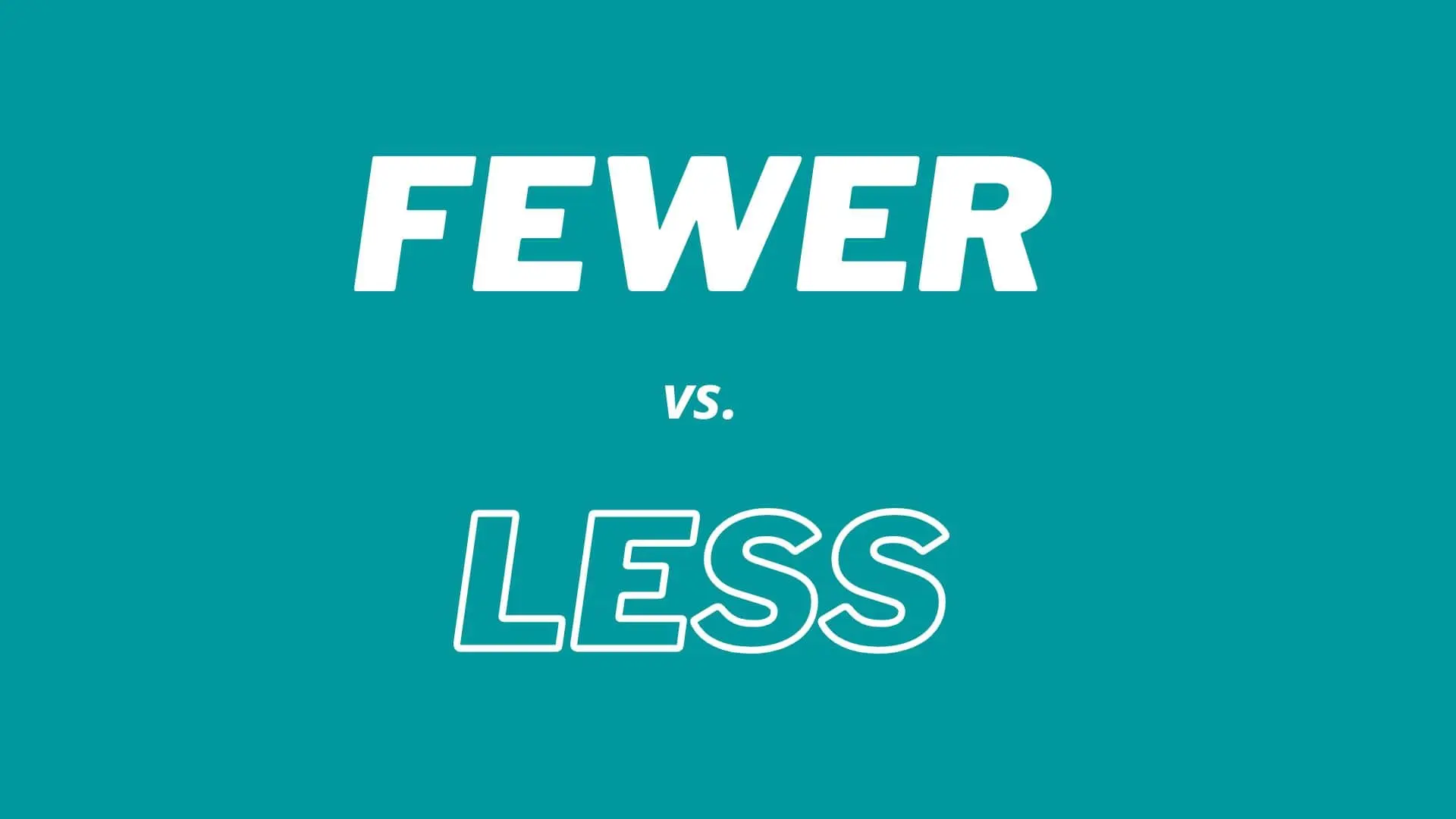

When it comes to teaching English grammar, few topics are as confusing for students as understanding the difference between “fewer” and “less.” The two words are often used interchangeably, but they have very different meanings, and they can’t be used interchangeably without causing confusion. In English, the difference between “fewer” and “less” is one of the subtle nuances that can be difficult to master.
When it comes to understanding the difference between “fewer” and “less,” the key is to remember that “fewer” is used for things that can be counted, and “less” is used for things that cannot be counted.
For example, if you are talking about a group of people, you would use “fewer” because people can be counted. On the other hand, if you are talking about an emotion such as happiness, you would use “less” because happiness cannot be counted.
The same principle applies to other words such as “many” and “much.” “Many” is used for things that can be counted, and “much” is used for things that cannot be counted.
Also, to better understand the difference between “fewer” and “less”, one needs to think of it in terms of quantity. “Fewer” is used when talking about a smaller number of something, while “less” is used when talking about a smaller amount of something.
For example, if you are talking about a group of people, you would say, “There were fewer people at the party” because you are talking about a smaller number of people. On the other hand, if you are talking about the amount of food at the party, you would say, “There was less food at the party” because you are talking about a smaller amount of food.
It is important to remember that both “fewer” and “less” can be used for both countable and uncountable nouns, but the meaning of the words will change depending on the context.
Here are some examples of when to use “fewer” and “less”:
“There were fewer people at the party than I expected.”
“There was less food at the party than I expected.”
“I have less time to finish this project than I thought.”
“I have fewer items than I thought I would need.”
One of the most common mistakes when using “fewer” and “less” is using them interchangeably. As we have seen, “fewer” is used for things that can be counted and “less” is used for things that cannot be counted.
Using “fewer” for something that cannot be counted or “less” for something that can be counted will lead to confusion and incorrect usage.
Another common mistake is to use “less” when talking about a smaller number of something. For example, if you are talking about a group of people, you would say “There were fewer people at the party”, not “There were less people at the party”.
In conclusion, understanding the difference between “fewer” and “less” can be tricky, but it’s important to remember that “fewer” is used for things that can be counted, and “less” is used for things that cannot be counted. It’s also important to remember that both “fewer” and “less” can be used for both countable and uncountable nouns, but the meaning of the words will change depending on the context. Finally, it’s important to avoid common mistakes such as using “fewer” for something that cannot be counted or “less” for something that can be counted.
Data: 01.02.2023
 Theresa
Theresa